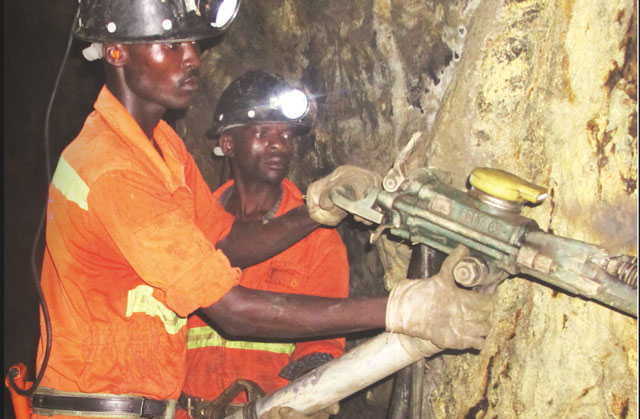
Kampala, Uganda | THE INDEPENDENT | The Ministry of Energy and Mineral Development has ordered dealers in the extraction of earth materials to register officially in an ambitious move to regulate and streamline the sector in the country.
Agnes Alaba, the Commissioner for the Mines Department at the Ministry, revealed that whoever is currently interacting with any minerals such as dealers, artisanal and small-scale miners, and transporters is required to register to avoid conflicting with the law.
The move is part of the operationalization of the Mining and Minerals Act, 2022 (the “MMA”) which was enacted by Parliament in February 2022 and came into force on 13 October, the same year, replacing the Mining Act, 2003.
Alaba told URN in an interview on Monday that after Parliament passed the new legal requirement, the Ministry immediately halted the issuance of new licenses to miners to streamline both the long and short-term investments into the mining industry but the exercise has now recommenced.
Meanwhile, Peter Lokeris, the State Minister for Minerals said the Ministry has already rolled out sensitization programs for the sector players to comply with the new legal regime to curb smuggling and enhance revenue to the Government.
Some key amendments under the Mining and Minerals Act include new mineral rights that may be acquired, such as large-scale, medium-scale, small-scale, and artisanal mining licenses. According to the Ministry, at least 900 artisanal miners so far have been registered following the call. Unlike the Mining Act, of 2003 which limits building mineral exploitation to domestic use, the new Act provides the right to exploit building substances for commercial purposes.
In 2021, an Airborne Geophysical Survey conducted by the Ministry which covered the entire country identified 18 mineral targets which include uranium, cobalt, copper, nickel, gold, chromite, iron ores, tin, tantalite, tungsten, limestone, marble, graphite, gemstones, and rare earth metals among others.
To prospect, explore, mine, retain, process, or dispose of any building substance for commercial purposes, one must possess a quarry license issued by the Ministry and authorization under the National Environment Act, 2019. The Act also revises royalty sharing propositions such that the government receives 70%, district local government receives 15%, sub-county/town council 10% and the registered or customary owner, or lawful or bona fide occupant of the land 5%.
Notably, offenders of the Mining and Minerals Act will pay fines ranging from 60–500 million Shillings or serve imprisonment terms of between 2 and 7 years or both. In 2017, the Ministry said mineral resources attracted increased Foreign Direct Investment in the sector from US$ 5 million in 2003 (18.721 billion Shillings) to over US$ 800 million, approximately 2.995 trillion Shillings.
*****
URN
 The Independent Uganda: You get the Truth we Pay the Price
The Independent Uganda: You get the Truth we Pay the Price



